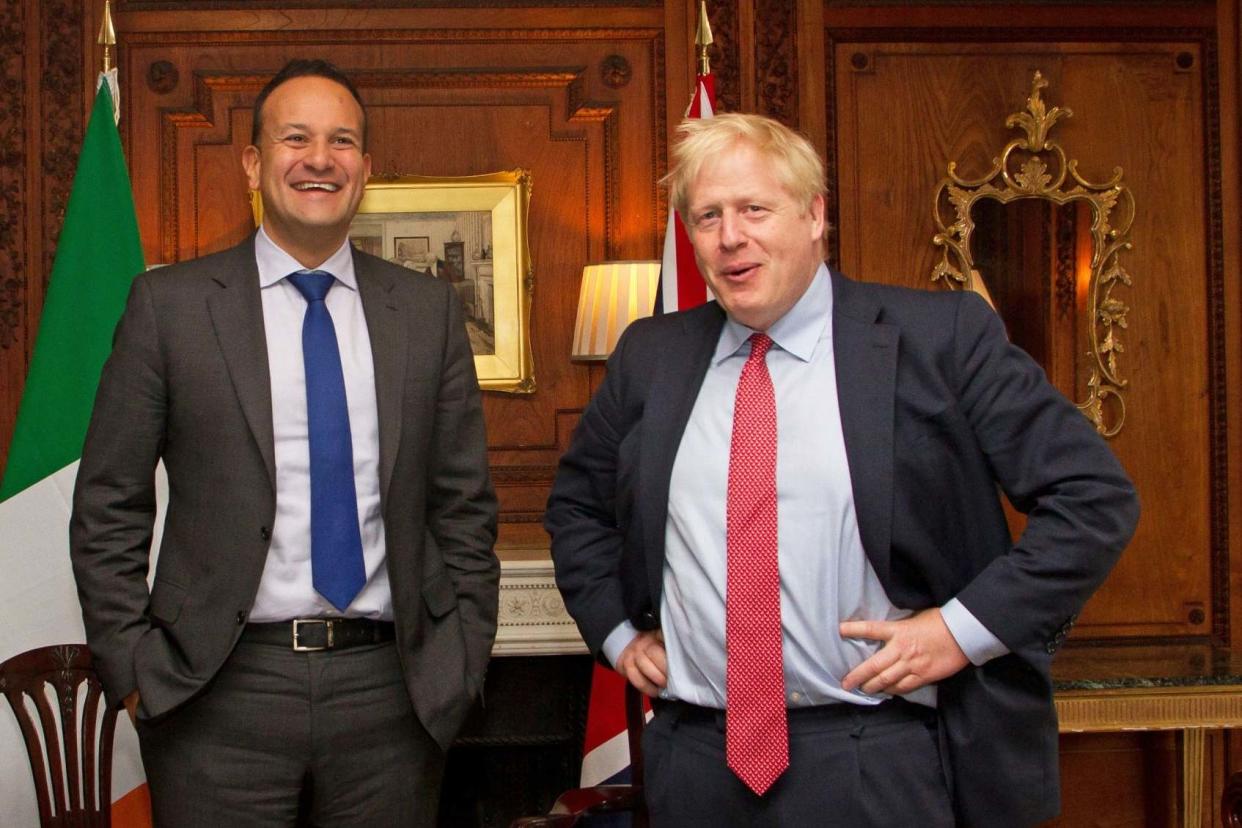David Gauke: Don’t smile too soon — even with a deal, Brexit could be a bad trade-off

Reaching a deal with the EU was always going to require compromise. For too long, the debate in the UK about the terms of our departure from the European Union has been dominated by those who believe that the louder we shout and the more we threaten, the more likely it is that we will get our way.
This has never been true. The EU has certain interests that it will always defend, such as the integrity of the single market and the customs union. The Republic of Ireland has certain interests that no taoiseach seeking re-election can ever abandon — such as maintaining the free flow of goods between the Republic and Northern Ireland. A club of 27 nations will always prioritise the interests of one of the club over a third country. And the threat of no deal carries little weight when those threatened think that the party making the threat will come off a lot worse (and, therefore, be in a weaker negotiating position in future) than the party being threatened.
Resolving Brexit in a responsible manner was always going to require an acknowledgment of these simple truths, at least in private. The Prime Minister deserves credit if he has recognised these realities.
In recent days, the tone from the UK Government has been constructive. It is hard to see how this would have happened had Parliament not intervened to prevent us crashing out on October 31 by passing the Benn Act.
We wait to learn details of any putative deal but, assuming negotiations with the EU are successfully concluded, even for those of us minded to support a deal (and I am), there are four questions that will need answering.
First, where does this leave the integrity of the United Kingdom? From what we know so far, Northern Ireland will diverge further from the UK under the new proposals than under Theresa May’s deal. The risks to the integrity of the UK are obvious and the details of the consent mechanism and the proposed customs arrangements will be crucial.

Second, do the customs proposals work? Plenty of people currently in government were very critical of similar proposals when set out by May’s government. The workability of the plans is, again, something that requires close scrutiny.
On both these points, I would urge my parliamentary colleagues not to rush to judgment and give the Government the opportunity to address these concerns.
The third question is not so much about the immediate terms of withdrawal but the ultimate destination for Britain. The Government’s priority for Great Britain appears to be on having the freedom to enter into free trade agreements (FTAs) with third countries. Unfortunately, this freedom does not bring big economic advantages. For a start, the EU already has FTAs in place for economies such as Japan, South Korea and Canada.
Getting trade deals with other countries will not be at all easy (it is hard to see how the British public would support a deal with the US that involved agriculture, or that the US would support a deal that didn’t involve agriculture). And even if we agreed FTAs with every major potential partner, the upside to our economy would be just 0.2 to 0.6 per cent of GDP according to government analysis published in November.
However, the cost of prioritising being able to enter into our own FTAs is very high. The same government analysis suggests that entering into a Canada-style FTA with the EU,which preserves the ability to enter into FTAs with third countries, also increases trade friction with the EU. This will reduce our GDP by up to 6.7 per cent. In other words, for every pound gained to the UK economy by being able to enter into FTAs with third countries we will see a loss of up to £33. This works out as making us £2,250 per head poorer.
Even that loss is dependent on reaching a Canada-style FTA, which itself is likely to require agreeing to level playing field provisions (minimum standards on environmental protection, social protection and state aid etc) which the Government has, so far, resisted.
The recent pragmatism from the Government in respect of the terms of our withdrawal will need to be extended to its ambitions for the long-term relationship. Parliament will want to be reassured that agreeing to a departure deal now doesn’t leave us heading for a no-deal Brexit after the next stage of negotiations because we cannot agree on the level playing field provisions. More generally, Parliament is entitled to seek reassurance that the costs of any Brexit deal are small and manageable.
Fourth, and finally, how long is this going to take? Important points of detail need to be hammered out with the EU. The legal text needs to be agreed, the European Parliament needs to consent and the UK Parliament will need to take through the necessary legislation which will address vital points of detail. With the best will in the world, it is hard to see how this process will be remotely close to completion by October 31.
Where does that leave us? Recent progress is to be welcomed but much will depend on the detailed negotiations. But Parliament will need to be reassured that it is not being asked to nod through a Brexit that comes at an unnecessarily high economic price.
David Gauke is MP for South West Hertfordshire.

 Yahoo News
Yahoo News 
